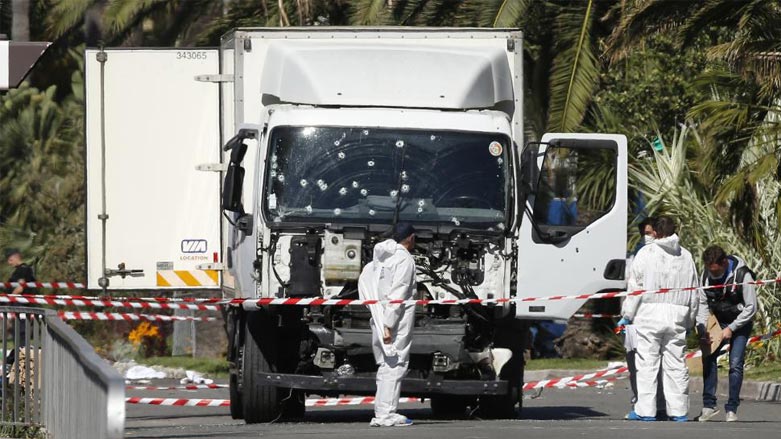Jordan arrests two key Islamic State figures

WASHINGTON DC, United States (Kurdistan24) – Jordan is extremely worried about the Islamic State (IS.) So, too, is France. And at least some elements within the intelligence agencies of both countries are very irritated at the US. Even now—after fighting IS for nearly two years—Washington does not seem to understand the organization very well.
A month ago, Jordanian authorities arrested two senior IS figures: Zaid al-Tikriti and his brother, Rahim, as a US intelligence source revealed to Kurdistan24.
Zaid and Rahim are part of the clan that includes Saddam Hussein’s three deceased half-brothers: Sabawi, Barzan, and Watban. They were all notorious figures in the Saddam-era intelligence and security apparatus.
Zaid and Rahim were similarly employed. Zaid was a colonel in Iraqi intelligence under Saddam. Rahim became a senior official in Saddam’s unconventional weapons programs, after studying in Britain, where he received a doctorate in microbiology.
The two men were arrested with six others, their bodyguards, as they crossed into Jordan from Iraq. They planned on transiting through Jordan to France, as they had reservations for a flight to Paris.
Was Paris their ultimate destination? Possibly, although once in France, they could have travelled freely to any of the twenty-five other countries in the European Union’s visa-free Schengen area.
What did they intend to do in Europe? If Jordanian authorities know the answer to that question, they are not saying.
The brothers have told the Jordanians that Saddam’s deputy, Izzet Ibrahim al-Duri, is responsible for IS terrorist operations worldwide. They have also said that the West “should watch out,” because “something big is on the way.” It is impossible to know, if there really is such a plot afoot, or if they were simply boasting.
The countries with which Jordanian intelligence has shared this information include France, Germany, and the US.
French intelligence is alarmed, and the reasons are obvious. The two were flying to Paris, and France has suffered three major IS attacks in the past 18 months. French citizens are starting to ask whether their government knows how to keep them safe.
German authorities are also concerned, and they have taken the Jordanian report seriously.
Neither French nor German intelligence has a problem accepting a basic part of the Jordanian report: the former Saddam regime constitutes a critical element within IS.
Indeed, the German weekly, Der Speigel, has published the best open-source account of IS. The article, entitled, “The Terror Strategist: Secret Files Reveal the Structure of Islamic State,” was a leak from German and French intelligence.
The article explains that former Iraqi intelligence officers created IS in Syria. They established IS in late 2012, as the regime of Bashar al-Assad began to lose its grip. They then took IS back into Iraq.
Although French and German intelligence credited the Jordanian report, the CIA did not. In Amman, the CIA station was receptive. It said that the Jordanian information “fits with the way things are on the ground.”
However, at headquarters in Washington, the Jordanian report was dismissed by management. It complained that the information “didn’t align” with the voluminous amount of intelligence the CIA already had on IS which indicated otherwise.
Jordanian intelligence is considered to be highly capable. And since Jordan is in the region, bordering IS-held territory, it might well have useful perspectives on IS that Americans lack.
But that is not the CIA view. It remains committed to concepts about “Islamic” terrorism that it developed long ago.
The Islamic terrorist threat, as directed against the US, first arose during Bill Clinton’s presidency, with the 1993 bombing of New York’s World Trade Center. A rigid and inflexible view emerged. It was assumed that the driving force behind such attacks was ideology—religious extremism—and that all individuals involved in such attacks were religious fanatics.
The CIA did not seriously consider the possibility that secular groups might use Islamic extremism as a means to recruit “useful idiots” (Lenin’s term) and as a cover for their own hostile actions.
In September 2001, the Kurdistan Regional Government’s representative in Washington told me about an exchange he had had with US authorities just before 9/11. He had complained that Saddam was supporting Ansar al-Islam, which had established itself in the Kurdistan Region near the Iranian border
US authorities, however, dismissed his complaint, affirming that Saddam would not work with Islamic extremists!
Fifteen years later, the CIA, or at least management, appears committed to the same perspective and unwilling to consider the Jordanian report on virtually the same grounds.
Such rigid and inflexible thinking interferes with the effective pursuit of the war against IS. It also compromises the ability of the US and allied governments to thwart the terrorist attacks that have arisen in the context of this war and, almost certainly, will continue.
Editing by Delovan Barwari
